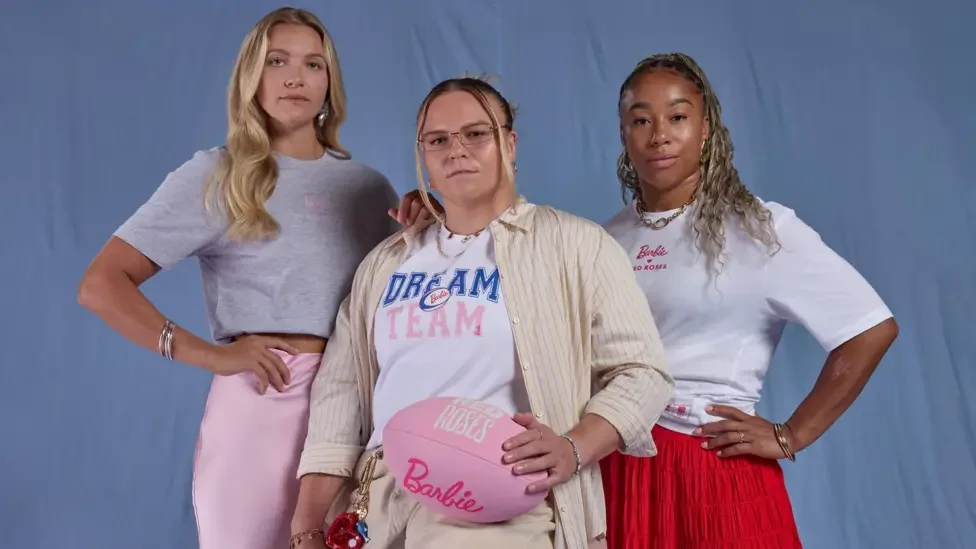This summer marks more than just tournament fever for England’s Red Roses - it’s the moment when the iconic Barbie brand steps onto the pitch as their first-ever UK sports partner. This collaboration isn’t about plastic dolls and pink accessories; it’s about empowering girls through sport, amplifying confidence, and laying a foundation of inspiration using rugby’s role models.
Barbie’s alignment with elite athletes like Zoe Aldcroft, Sarah Bern, and Sadia Kabeya offers a fresh cultural narrative: sporty, bold, community-driven - and deeply aligned with contemporary female ambition.
Supporting Stats
First UK sports team partnership for Barbie - a bold leap from traditional toy marketing into authentic brand purpose
Initial rollout includes t-shirts, hoodies, and replica balls, not dolls - demonstrating substance over stereotype
Tied to the Barbie Dream Gap Project and RFU’s growth goals, with support for 400+ Girls’ Activity Days nationwide - highlighting scale and commitment.
Decision: Did It Work?
Absolutely.
Culturally, this is a savvy and timely reframing of the Barbie brand - moving from toy to champion for girls’ empowerment. The Red Roses exemplify physical strength, leadership, and visibility in women’s sport; pairing them with Barbie is a culturally coherent and progressive move.
Commercially, the partnership offers access to new audiences - girls and families looking for aspirational rather than aspirifice role models. Launching with practical merchandise over dolls signifies serious inclusivity, not caricature.
Creatively, this venture feels genuine - not a scattergun brand drop, but a storytelling collaboration rooted in shared values: confidence, community, and sport.
Key Takeouts
What happened? Barbie partnered with England Rugby’s Red Roses - its first UK sports team tie-up - to launch purposeful merchandise and drive Girls’ Activity Days supporting RFU’s growth initiatives.
What worked? Authentic alignment with athletic icons; merchandise that matters; and programming that builds community on and off-field.
What might miss? Without follow-through in content and activation, the buzz could fade. The lack of dolls isn’t a problem - but future moves must ensure the collaboration extends beyond merch.
What does it signal? Brands can - and should - move beyond tokenism. Empowerment partnerships with real-world relevance are increasingly expected.
Marketers’ takeaway: Bold brand moves are not about scale alone - they require cultural insight, credible activation, and sustained programming that reflects brand values, not just logo swaps.
What We Can Expect Next
This feels like a starting line, not a finish. Other lifestyle or female-forward brands may watch this and replicate - not in generic terms, but with their own sport or purpose-driven angles.
But the challenge is sustaining momentum. Girls’ Activity Days are a powerful touchpoint - but they need follow-up: storytelling content, visibility for participants, and clear links between sport and brand beyond summertime chatter.
Risks? Oversaturation is unlikely here - this is fresh, relevant, and rooted in real cultural interest. But tokenism, or a pull-out post-World Cup, could dim the goodwill quickly.
